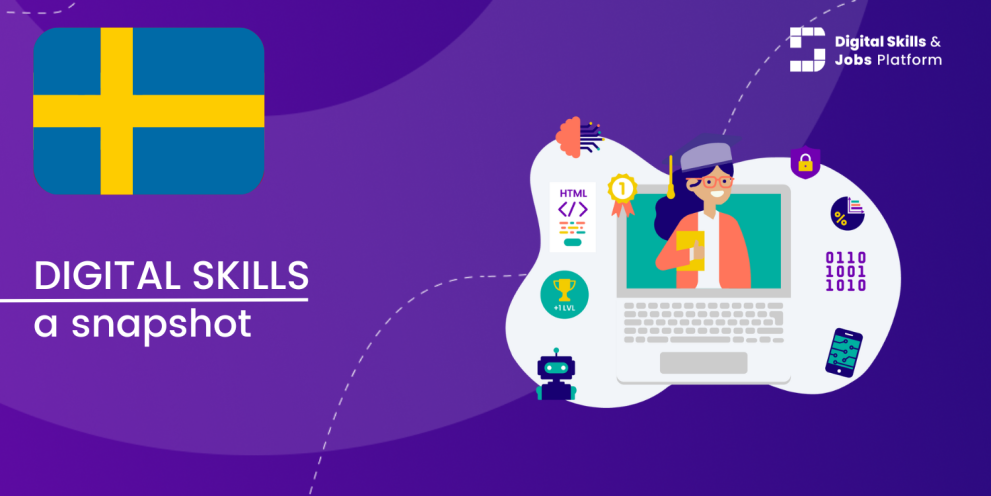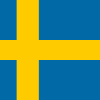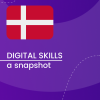Sweden: a snapshot of digital skills

Introduction
In the 2024 edition of the Digital Decade report, Sweden has achieved 66.4% basic digital skills coverage, compared to the EU average of 55.6%. This puts Sweden at 83% of the overall target for the EU 2030 goal, which aims to have 80% of the EU population possessing at least basic digital skills.
According to the Digital Decade report 2024, Sweden performs better than the EU average in both digital skills indicators. The percentage of ICT specialists in employment has surpassed the EU average, increasing/decreasing from 8.6% to 8.7% (EU average - 4.8%).
In 2018, the Swedish National Digital Skills and Jobs Coalition was formed and has grown consistently in size throughout 2019 and 2020. The coalition is now a multi-stakeholder partnership who are actively involved in promoting digital skills and competence in Sweden. The coalition operates as a member-oriented network and aims to create collaborative and inclusive environments for its members to meet and discuss. With around 30 member organizations, the coalition represents a diverse range of sectors, including government agencies, universities, industry associations, private sector representatives, and non-governmental organisations (NGOs).
Overview of state strategies and national initiatives
State strategies
Sweden's current digitalisation strategy is the Digital Development Strategy (Handslag för digitalisering), which replaces the "Action Plan 2017-2025: Prerequisites for digital development in cities and regions”. The aim of the new strategy is to create a common direction for municipalities, regions and SKR, Adda and INERA regarding the basic conditions for development in a digital era. By working together and following this strategy, stakeholders can jointly contribute to strengthening digital development in Sweden and responding effectively and sustainably to the challenges of the future.
The Swedish National Agency for Education has submitted a proposal to the government for a new National digitalization Strategy for the School system for the years 2023–2027. This proposal was submitted on 19 December 2022, and the Swedish National Agency for Education writes, among other things, that the purpose of the strategy is to point out a common direction for the continued work and thus increase equivalence in preschool, school and adult education.
National initiatives
The Swedish Recovery and Resilience Plan has a total allocation of EUR 3.3 billion in grants and focuses on addressing challenges in relation to green and digital transitions and human capital. Sweden's digital challenges focus on the need to realise the transformative potential of digitalisation. To do so, they aim to increase the number of study places in higher vocational education and expand education at universities and other higher education institutions. This is necessary to address the current shortage of experts in the Information and Communication Technology sector.
The annual national event called 'Digitalidag' or 'Digitaltoday' focuses on the digital aspects of daily life and brings together public and private stakeholders from various societal sectors to encourage people to be a part of digital development. On October 14, 2022, the fourth edition of Digitalidag was held. 250 stakeholders from the business community, municipalities, authorities, libraries, academia, civil society and other societal actors participated and together arranged 1000 activities in 215 locations throughout Sweden.
Digital Skills Sweden Initiative has created multiple reports that cover various aspects related to digital skills. These reports include an analysis of the estimated shortage of 70,000 competent ICT professionals by 2024, look at how to define digital excellence; analyse job ads, provide future scenarios on how the availability of digital excellence may look depending on different policy decisions and how trends develop. The initiative has also presented a preliminary proposal to promote the supply of digital skills, which encompasses measures such as advancing education and research, developing a specialized council for cooperation, and improving the availability of statistics and projections.
They, for example, analyse the estimated shortage of 70 000 skilled ICT workers by 2024; look at how to define digital excellence; analyse job ads, provide future scenarios on how the availability of digital excellence may look depending on different policy decisions and how trends develop. The initiative has also made a preliminary proposal of how to promote the supply of digital excellence skills. The proposals range from boosting education and research; improved cooperation by creating a specialised Council and to improve the availability of statistics and forecasts.
Funding opportunities
Funding opportunities for upskilling and reskilling to support the digital competences of individuals and organizations are available in the form of loans, grants and financial instruments. For the period 2021 – 2026 most of the activities in digital transformation are financed through Recovery and Resilience facility but also as activities in Horizon, Erasmus+, ESIF and EEA grant schemes. You may find more on the page of the Swedish National Digital Skills and Jobs Coalition and in the article on the Digital Skills and Jobs Platform.






